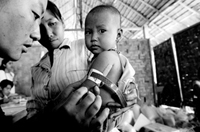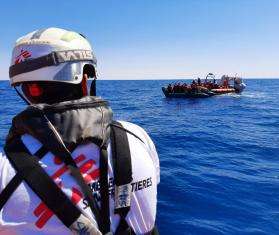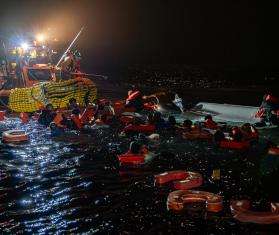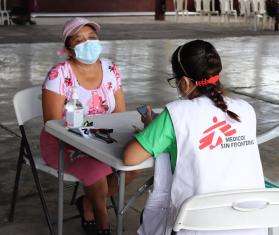On Wednesday, February 27, 2008, four ethnic Hmong families from the Huai Nam Khao refugee camp in Thailand were sent back to Laos. This confirmed fears expressed by Doctors Without Borders/Médecins Sans Frontières (MSF) in October 2007 with respect to the Thai government’s plans to forcibly repatriate 8,000 Hmong before the end of 2008. The refugees are currently confined to this camp in northern Thailand’s Petchabun province and claim to have fled violence and persecution in Laos.
According to Thai authorities, the four families of Hmong refugees sent back to Laos in February from the Huai Nam Khao camp were registered on a list of voluntary returnees. But statements from witnesses in the camp do not corroborate this account. On that day, Thai soldiers examined their registration cards and screened them. They then separated 12 people from the group and had them board military vehicles. According to these witnesses, several people were clearly being forced to board the vehicles.
“A mother of 5 children ages 2 to 15 was compelled to board military vehicles, even though her children were still in the camp,” said Gilles Isard, MSF head of mission in Thailand. “It’s hard to believe this woman was voluntarily returning to Laos without her children,”
MSF was able to interview four families registered on this so-called voluntary list of returnees. Their statements disclosed that none of them had expressed the desire to return Laos. Indeed, they fear for their safety if they return. There has been no independent assessment of the safety or conditions under which these refugees are being repatriated to Laos.
Between December 2007 and January 2008, Thai soldiers conducted a screening process of the Hmong refugees in Huai Nam Khao camp. The purpose of this operation was to separate refugees fleeing persecution in Laos from those migrating for economic reasons. It was conducted with no third party involved and its results were not communicated to the UN High Commissioner for Refugees (UNHCR) or any other international refugee rights organization.
It is urgent that a third-party organization, such as UNHCR, be allowed to judge whether repatriation requests made by the Hmong in Huai Nam Khao are valid, ensure that their rights are respected, and that any repatriation to Laos is voluntary, all of which should be performed in accordance with international standards protecting refugees.
Since July 2005, MSF has assisted the Hmong refugees in Huai Nam Khao in Petchabun province. MSF provides medical and relief assistance to the 8,000 refugees, including health care, psychosocial care, food, relief supplies, water, and sanitation.




